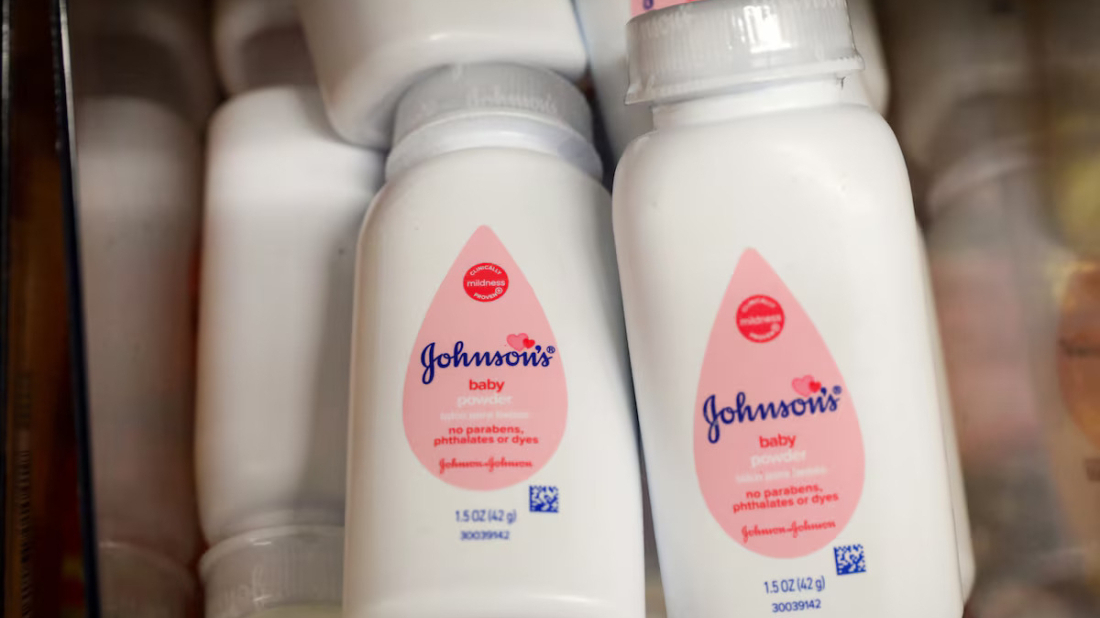UN reports 13 civilians killed in Pakistani airstrikes in eastern Afghanistan
The United Nations mission in Afghanistan said on Monday it had received “credible reports” that at least 13 civilians were killed and seven other...

Johnson & Johnson (J&J) is facing its first lawsuits in the United Kingdom over claims that its talc-based products cause cancer, as it continues to battle tens of thousands of similar cases in the United States.
The case was filed at the English High Court on Tuesday against J&J and Kenvue UK Limited, a subsidiary of Kenvue, J&J’s former consumer health division, which was spun off in 2023.
Law firm KP Law said it had brought the claim on behalf of more than 3,000 people who allege they developed ovarian cancer, mesothelioma, or other illnesses after using J&J’s baby powder between 1965 and 2023.
The firm argues that J&J’s talc products contained carcinogenic fibres, including asbestos, which has been linked to mesothelioma. J&J has consistently denied these allegations, insisting its talc products are safe and asbestos-free.
J&J referred all queries to Kenvue, stating that the latter “retained responsibility and any potential liability for talc-related litigation outside the United States and Canada.” Kenvue, for its part, maintained that J&J’s baby powder “did not contain asbestos and does not cause cancer.”
The company is already facing tens of thousands of lawsuits in the U.S., where claimants say they developed cancer after using J&J’s talc-based products. J&J halted sales of its talc baby powder in the U.S. in 2020, replacing it with a cornstarch-based alternative, and did the same in the U.K. in 2023.
Its attempts to resolve the lawsuits through bankruptcy have been rejected three times by U.S. federal courts. Last week, J&J was ordered to pay $966 million to the family of a woman who died from mesothelioma, one of the largest awards against the company, though it may be reduced on appeal.
While U.S. courts can issue large punitive damages, English courts generally limit compensation to actual losses suffered, with exemplary damages only awarded in rare cases of deliberate wrongdoing.
KP Law valued the collective claim at around £1 billion ($1.34 billion). Unlike in the U.S., the case will be decided by a judge rather than a jury. Kenvue said it believes the judge will conclude that its talc-based baby powder does not cause cancer.
A seven-month-old Japanese macaque has drawn international attention after forming an unusual bond with a stuffed orangutan toy after being rejected by its mother.
Pakistan said it carried out cross-border strikes on militant targets inside Afghanistan after blaming a series of recent suicide bombings, including attacks during the holy month of Ramadan, on fighters it said were operating from Afghan territory.
Italy said a fond farewell to the Winter Olympics on Sunday with an open-air ceremony in the ancient Verona Arena that celebrated art and sporting achievement at a Games lauded as a model for how to stage such events.
Ukraine’s President Volodymyr Zelenskyy has approved new sanctions targeting Russian maritime operators, defence-linked companies and individuals connected to Moscow’s military and energy sectors, according to official decrees issued on Saturday.
The chief executive of Google DeepMind, Demis Hassabis, has called for more urgent research into the risks posed by artificial intelligence, warning that stronger safeguards are needed as systems become more advanced.
Measles cases across Europe and Central Asia fell sharply in 2025 compared to the previous year but health officials have warned that the risk of fresh outbreaks remains unless vaccination gaps are urgently addressed.
A Florida university has become a new hotspot in a widening U.S. measles outbreak, with health officials confirming multiple infections and hospitalisations.
The World Health Organization has added the Nipah virus to its list of the world’s top 10 priority diseases, alongside COVID-19 and the Zika virus, warning that its epidemic potential highlights the global risk posed by fast-spreading outbreaks.
Belgian authorities are examining suspected cases of infants falling ill after consuming recalled Nestle baby formula, amid warnings that confirmed infections may be underestimated due to limited testing requirements.
Two Nipah infections involving health workers in India have triggered heightened screening across Southeast Asia as authorities move to prevent the high fatality virus from spreading beyond the country.
You can download the AnewZ application from Play Store and the App Store.

What is your opinion on this topic?
Leave the first comment